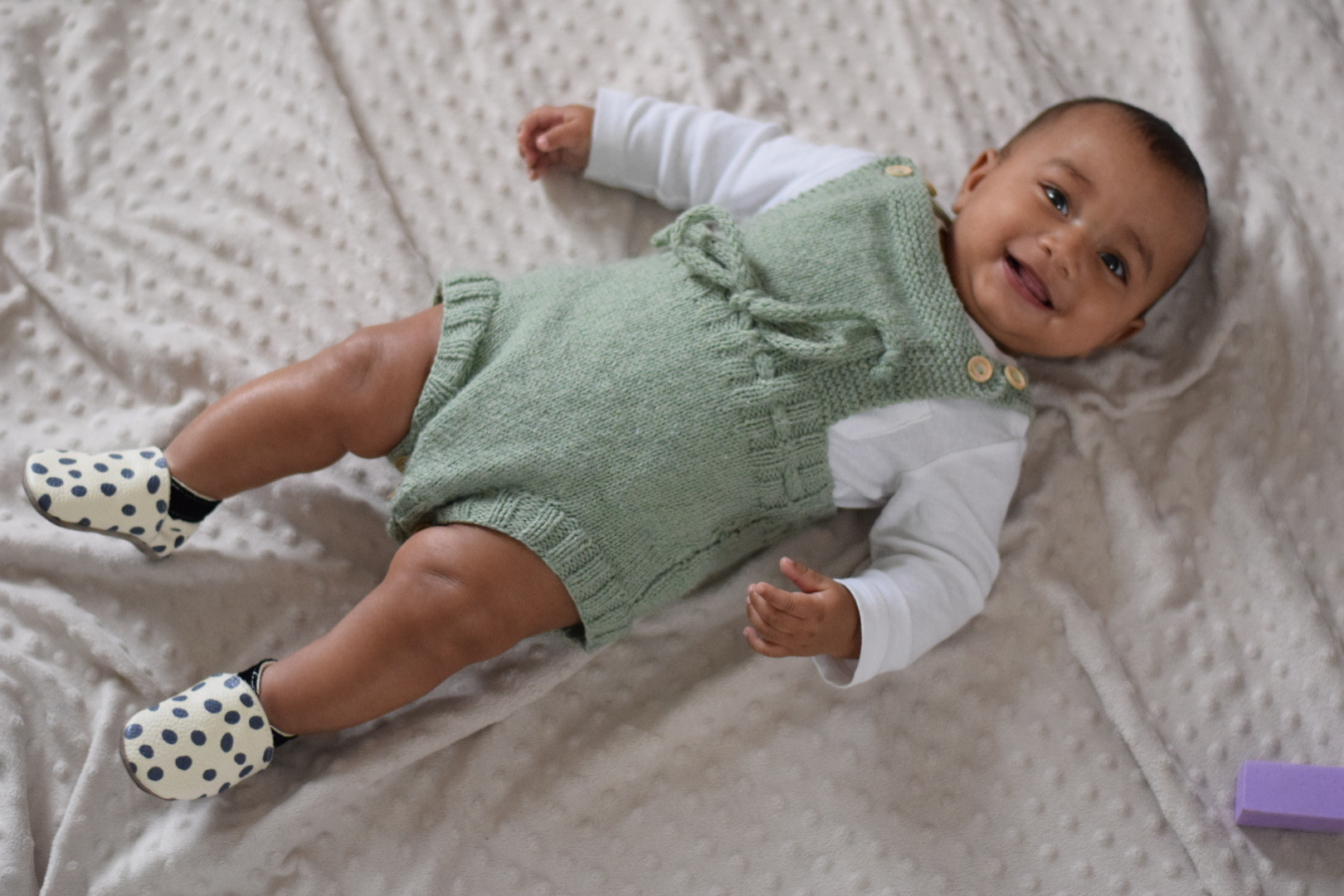When Do Babies Get Their First Tooth?

The arrival of a baby's first tooth is a significant milestone in their development. Understanding when babies typically get their first tooth is essential for parents to prepare for and manage this often endearing yet demanding stage. Knowing the teething timeline can help alleviate concerns and provide guidance on how to best support a teething baby.
This blog will provide information on when babies get their first teeth so you can identify signs of teething in babies and help alleviate their discomfort.
Average age for first tooth
Most babies get their first tooth between 4 to 7 months old. This first tooth usually emerges at the bottom front of the mouth, known as the lower central incisors. However, some babies may start teething as early as 3 months, while others may not begin until after their first birthday. Every baby is different, and there is a wide range of normal when it comes to the teething timeline.
Teething is a natural process, and it's important for parents to understand that variability is entirely usual. The age at which a baby gets their first tooth can depend on numerous factors, including genetics and overall health. Parents should not worry excessively if their baby deviates from the average timeline, but they should be aware of the broad range of normal teething ages. Knowing when babies get their first tooth can help parents anticipate and manage this developmental phase more effectively.
Early teethers
Teething before 4 months is considered early. If your baby starts teething at 3 months or even sooner, it can be surprising and a bit challenging to manage. Early teething can be influenced by genetic factors, with some families having a history of early teethers. Additionally, certain health conditions and nutritional factors might play a role.
Babies who teeth early might show signs of readiness such as increased drooling and a desire to chew on objects. Red cheeks can often be a precipitous sign too. Parents should ensure that any objects their baby chews on are safe and free from choking hazards. Whilst early teething is usually not a cause for concern, it is always a good idea to consult with your local doctor to ensure everything is progressing normally.
Early teethers may also experience teething symptoms more intensely due to the immature development of their gums and oral structures. Parents can provide relief through gentle gum massages, offering chilled teething rings, and ensuring their baby gets plenty of rest and hydration.
Late teethers
On the other hand, some babies may not get their first tooth until after 12 months, which is referred to as late teething. Just as with early teething, factors influencing delayed teething can include genetics, nutritional deficiencies, and underlying health conditions. Babies born prematurely may also experience delayed teething.
If your baby hasn't started teething by 18 months, it is advisable to consult with a healthcare professional, health visitor, or GP to rule out any potential issues. Delayed teething does not necessarily indicate a problem, but it is important to ensure that there are no underlying health concerns. In most cases, late teethers simply catch up with their peers without any long-term issues.
Parents of late teethers should focus on providing a balanced diet rich in essential vitamins and minerals, as nutrition plays a crucial role in infant dental development. Regular check-ups with a healthcare provider can help monitor the baby's overall growth and development, including their dental health. Recognising the signs of teething in babies who are late teethers is just as important for their care.
Signs of teething in babies
Knowing these baby’s first tooth symptoms can help parents provide the necessary comfort and care during this period. Common signs include:
Increased drooling: Excessive drooling is one of the earliest signs of teething. Parents might find that they need to change their baby's clothing more frequently or use bibs to keep their baby dry.
Chewing on objects: Babies often chew on toys, fingers, or anything they can get their hands on to relieve gum discomfort. Providing safe, teething-specific toys can help soothe babies’ gums.
Irritability and fussiness: Teething can make babies cranky and harder to soothe. Parents might notice that their baby is more clingy or cries more often.
Swollen or sensitive gums: Where the tooth is about to emerge, the gums may appear red and swollen. Gentle gum massages can provide some relief for your baby.
Slight increase in temperature: Some babies may have a slight rise in body temperature during teething, but it should not be confused with a fever. If your baby has a high fever, consult a healthcare professional or GP as this may be a sign of an infection.
Red cheeks: A ruddier than usual cheek or cheeks can indicate the onset of teething.
Other symptoms to look for
In addition to the signs of teething, there are several common symptoms that babies might experience. Understanding these symptoms can help parents better manage the teething process and provide the necessary comfort to their little ones.
Biting and gnawing: Babies will often bite on hard objects to help ease the pressure on their gums. Ensure that any objects your baby has access to are clean and safe.
Restless sleep: Teething discomfort can disrupt sleep patterns, causing more frequent waking at night. Establishing a soothing bedtime routine can help manage this.
Refusal to eat or take food in the mouth: Sore gums and cheeks can make eating uncomfortable, leading some babies to refuse food or drink. Offering cool, soft foods can make eating more comfortable for a teething baby.
Dental care tips for baby teeth
Once your baby’s first tooth appears, it is crucial to start good dental hygiene practices. Here are some tips to ensure your baby's teeth are well cared for from the start:
Cleaning baby’s teeth: Use a soft, damp cloth to gently clean your baby's teeth and gums. This helps remove food particles and prevent bacterial build-up. Start this practice even before teeth appear, as it helps your baby get used to oral care.
Introduction to brushing: As more teeth come in, you can introduce a baby toothbrush. Choose one with soft bristles and use a tiny smear of fluoride toothpaste. Brush twice a day, particularly after the last feed at night.
Establishing good dental habits: Schedule your baby’s first dentist visit by their first birthday or within six months after their first tooth comes in. Early dental visits can help detect any potential issues and establish a positive dental routine. Discuss fluoride use and other preventive measures with your dentist.
Optimum health as your baby develops
Teething is a significant phase in your baby's development. By understanding when babies get their first tooth and recognising the signs of teething, parents can better support their children through this process. Early and consistent dental care is essential to ensure your baby’s teeth and gums remain healthy as they grow.
Parents play a crucial role in ensuring their baby’s comfort during teething. Offering appropriate teething toys, maintaining good oral hygiene, and providing plenty of love and support can make this developmental milestone more manageable. Remember, teething is a temporary phase, and with the right care, your baby will soon have a beautiful set of first teeth.
Inch Blue shoes
The period when your baby gets their first tooth is often filled with many milestones, including the exciting moment they begin to learn how to walk. As your little one starts to take their first steps, ensuring proper foot health becomes a top priority. Inch Blue shoes are designed with your baby's development in mind. Made from soft, breathable leather, these shoes provide the perfect combination of comfort and support, allowing your baby's feet to grow naturally.
With a range of designs to suit every personality, Inch Blue pre-walker shoes are the ideal choice for your child’s early crawling and teetering adventures. By choosing Inch Blue, you are ensuring that your baby’s feet are well cared for during this critical stage of development.
